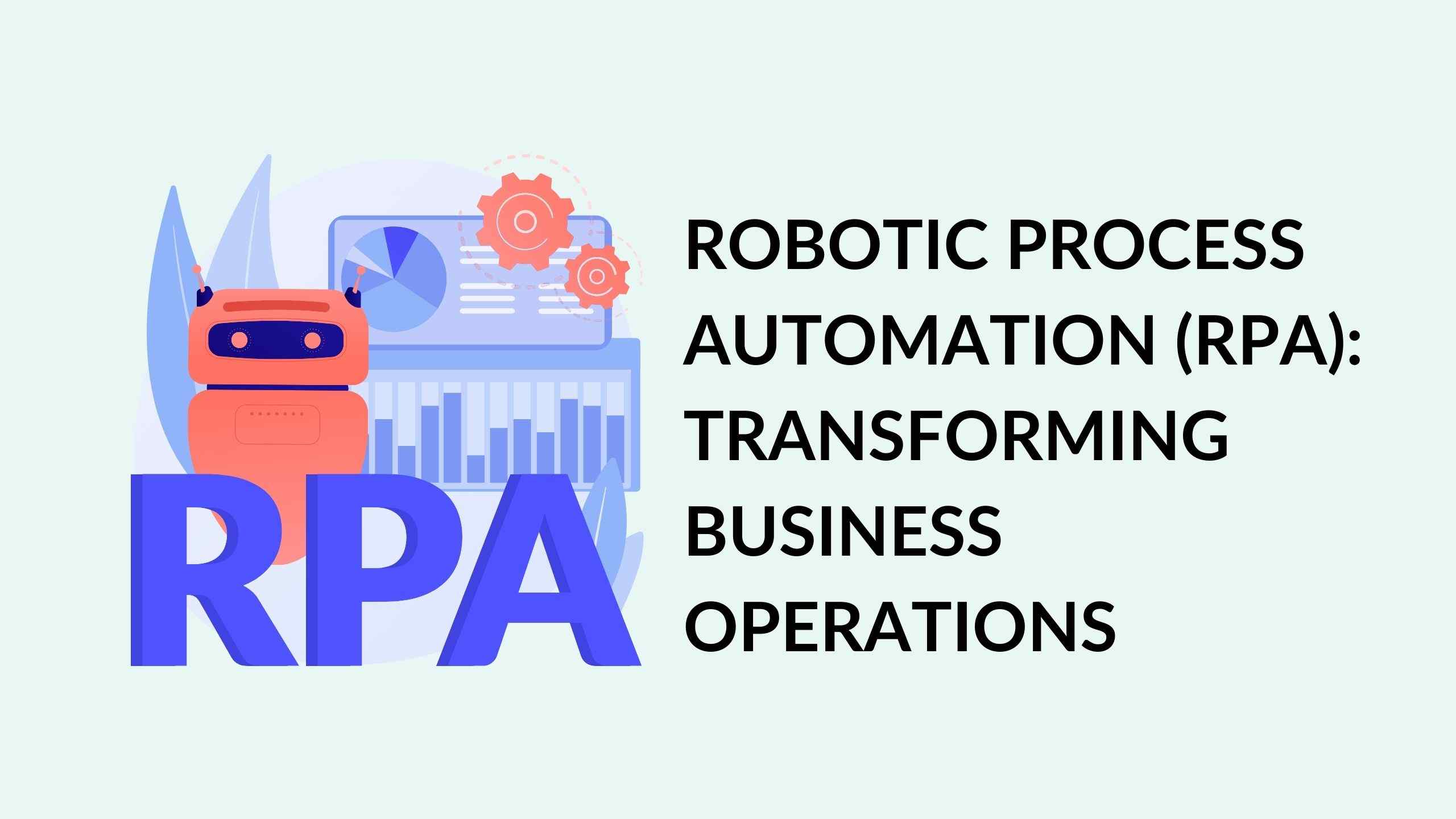Robotic Process Automation (RPA): Transforming Business Operations
-


Robotic Process Automation (RPA): Transforming Business Operations
In a world where agility and innovation are the cornerstones of success, businesses are turning to automation as a catalyst for transformation. Among the arsenal of tools and technologies driving this revolution, Robotic Process Automation (RPA) stands at the forefront. From the financial sector to retail giants, RPA is redefining how businesses operate, and its impact is undeniable.
The RPA Revolution
RPA is not a mere buzzword; it’s a transformative force. A leading global research and advisory firm has predicted that by 2022, a staggering 85% of large companies will have deployed some form of RPA. This statistic underscores the significance of RPA in the realm of business operations.
In an era of digital transformation, agility is the key to navigating a rapidly evolving landscape. Embracing a robust digital mindset, backed by innovation, is essential for organizations to remain competitive. Enter RPA – a comprehensive suite of services that empowers organizations to make intuitive decisions at scale, access real-time insights, provide anytime/anywhere experiences, and enhance data visibility across functions. RPA propels businesses into the realm of the “Live Enterprise,” where innovation thrives collaboratively.
Unveiling the Power of RPA
RPA is not just another tool; it’s a game-changer. It liberates human capital by automating repetitive and mundane tasks, allowing your workforce to focus on strategic initiatives. The business benefits of RPA are multi-fold:
1. Reduced Staffing Costs
Implementing RPA frees up valuable staff time, empowering automated systems to handle repetitive tasks. Your workforce can then redirect their efforts towards high-value business areas that require human intervention and decision-making.
2. Elimination of Human Errors
RPA significantly reduces the risk of errors compared to manual data entry. Pre-programmed robots excel at tasks like data entry, error reconciliation, and rule-based decision-making, ensuring impeccable precision.
3. Scalability
With RPA in place, businesses can efficiently scale up their operations to meet increased demand. The ability to handle more workloads makes RPA a valuable asset in today’s dynamic business landscape.
4. Improved Customer Service
RPA enables a customer-centric approach through AI- and ML-powered chatbots and tech support. Businesses can deliver exceptional customer experiences by providing quick responses to common queries.
5. Enhanced Productivity and ROI
By automating various tasks, RPA boosts productivity and yields higher returns on technology and human capital investments.
RPA’s applications span across diverse use cases, including customer service, invoice processing, payroll management, credit card applications, and sales order entries.
Capitalizing on RPA’s Potential
Leveraging RPA’s potential requires meticulous planning and strategic integration. Modern businesses can maximize their rewards by coupling RPA with smart technologies like Artificial Intelligence (AI), Machine Learning (ML), Natural Language Processing (NLP), and speech recognition. It’s essential to distinguish RPA from AI; while RPA requires human intervention and automates structured tasks, AI is equipped to process unstructured data independently.
Implementing RPA Successfully
For many businesses, fully realizing RPA’s potential remains a challenge. Selecting the right RPA tool and vendor is crucial. Here’s how you can navigate the implementation process effectively:
- Increase Your RPA Knowledge: Familiarize yourself with RPA and its strategies that align with your business needs.
- Upskill Your Workforce: Invest in your employees’ capabilities to ensure they can work harmoniously with RPA systems.
- Identify Automatable Processes: Determine which processes are suitable for automation and which require a human touch.
- Select the Right RPA Tools: Evaluate the RPA tools and solutions that best suit your business’s unique requirements.
- Choose the Right RPA Partner: Collaboration with the right RPA partner is essential for a successful implementation.
How Infosys BPM Supports RPA
Infosys BPM takes a leap beyond RPA by offering intelligent process automation – a fusion of RPA and AI. This revolutionary approach brings a zero-touch process, innovative service design, enhanced efficiency, amplified business value, and superior customer experiences. By integrating RPA technology and developing intelligent processes, Infosys BPM provides unprecedented agility, reduced effort, and increased productivity.
Explore the RPA Future
The future belongs to those who embrace RPA. It’s not just about adopting new technologies; it’s about redefining how businesses operate. As RPA continues to evolve, it will play an integral role in shaping the businesses of tomorrow.
For deeper insights into RPA and its transformative potential, you can explore the following resources:
- UiPath – Robotic Process Automation
- Clay – Robotic Process Automation: Transforming Business Processes with Intelligent Automation
- Medium – Robotic Process Automation (RPA): Revolutionizing Business Processes
- LinkedIn – Why Robotic Process Automation Is the Future
- Skill Mine – The Future of Work: How RPA Is Transforming Business Operations
As businesses strive for excellence in a dynamic landscape, RPA will continue to be the driving force behind transformative business operations.








